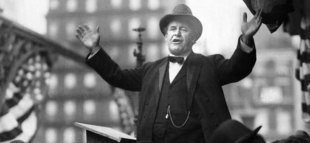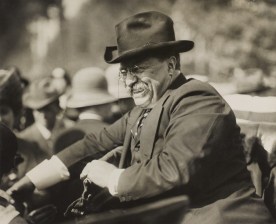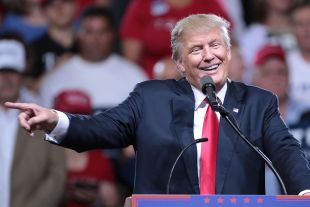The term “Populism” is hard to pin down. Here’s an example of why that’s so in a nutshell: Remember the Occupy Wall Street movement, and all its many offshoots? These were the folks crowding city streets all around the nation while wearing Guy Fawkes masks, railing against the “1%” and the perceived plutocracy, and camping out for weeks on end.
Related:
Those Occupiers didn’t seem to have much in common with folks from the Tea Party movement, right? The latter were more about the cowboy hats and flags and “Don’t Tread On Me” gear, and they targeted “Big Government” and taxation as the object of their ire. But guess what? Both can accurately be called Populist movements.
The fact is that Populism is a term that can adopted by (or ascribed to) pretty much any group of people — regardless of their political leanings — provided that at the heart of their message is the notion that true political power comes directly from the will of the people. Add to that the notion that said “will” is being suppressed by a (perceived) group of “elites.” So, to put it simply and crassly (yet with lovely alliteration), more often than not, Populists are pissed off people. If you’re picturing something like this:

Then… you’re right.
But let’s start way back…
One could argue that Julius Caesar was one of political history’s first populist leaders. He used popular anger at the Roman Senate (of which he was a member) to rile up the populace and alter laws through referendums that eventually led to his role of supreme power as Emperor.
Related: Influential Non-Presidents of America
Various Protestant groups used a populist approach to help establish themselves as viable alternatives to the Catholic church following the Reformation set off by Matin Luther in 1517. The new sects appealed to largely powerless peasants who had the most to gain from bucking a system ruled by church and landed elites.
And an ostensibly populist bent informed the leaders of the American Revolutionary War, the French Revolution, and were behind the many revolts that rose and, for the most part, failed across much of Europe in the mid 19th Century. (1848 was a particularly bloody year in terms of populist uprisings suppressed by the ruling establishment.)
When it comes to American populism, you can look to the so-called Robber Barons of the 19th Century as the original inspiration for many of the movements to come. The industrialist juggernauts who came to be known derisively as Robber Barons included names like Vanderbilt, Rockefeller, and Carnegie; these were men who built veritable empires of wealth thanks to their unscrupulous domination of burgeoning industries including steel, oil, and rail roads. Each came to hold not only immense wealth, but also immense power, often to the extreme detriment of the lower classes of Americans, people who were often working for the very men they detested.


The rest of the 20th Century saw its share of populists on both ends of the political spectrum. On the right, men like Joseph McCarthy and George Wallace both used appeals to the fears and angers of many “everyday” Americans to push their agendas (which were essentially anti-communism and bigotry, respectively), and with Huey Long and Ralph Nader as two of that century’s better-known populist politicians, and with none other than Bernie Sanders as a more recent left-leaning populist.



